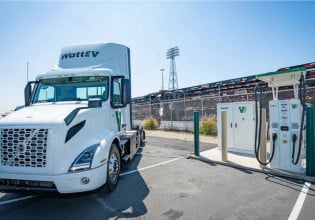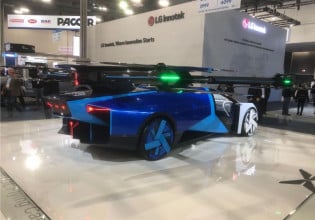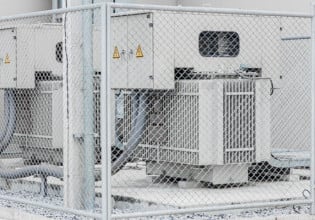SFC Smart Fuel Cell AG (SFC, Munich, Germany) announced a cooperation program with the German Federal Army's Military Vehicle and Tank Technology Department WTD 41. Under this program, SFC is to develop a next-generation portable fuel cell as power supply for soldiers in the field. The objective is to increase their tactical operating range. As a result of the program, weight and size of a soldier's equipment will be significantly reduced compared to existing, battery-based solutions, while at the same time increasing the amount of available electrical energy.
Soldiers today must carry a weight of up to 40 kg (88 lbs) in mission-relevant equipment, in some cases even more. This weight is mainly caused by electrical devices, e.g. communications systems or sensors, and the batteries required to run them. Also, the number of electrical devices needing electrical energy is continuously growing. Under the program, the weight of the new DMFC product, SFC's C20-II, will be reduced to a low 2.2 kg (4.9 lbs). Thus reducing the soldier's weight burden to approximately one-sixth of the weight of rechargeable batteries, and to one-fourth of the weight of primary batteries.
The product will also contribute to a considerable reduction of operating and logistic costs, as the cost of consumables is extremely low compared with batteries. Furthermore, the fuel cell will eliminate the need to discard partially discharged batteries as well as minimize transportation and logistics costs. The new product will work reliably even at very high or low ambient temperatures and will be robust, shock resistant, and waterproof. As a result of the program, the new generation SFC C20-II will be used with existing equipment and become the standard power supply for the soldier of the future. The SFC C20-II is able to either directly feed electrical devices or to recharge secondary batteries.
The development of the new product is expected to be finalized by the end of this year. The German Federal Army will do lab and field testing of the product in real operating conditions and compare the results with battery-based solutions. The objective is to make the fuel cell fully ready for use by the army as soon as possible.






